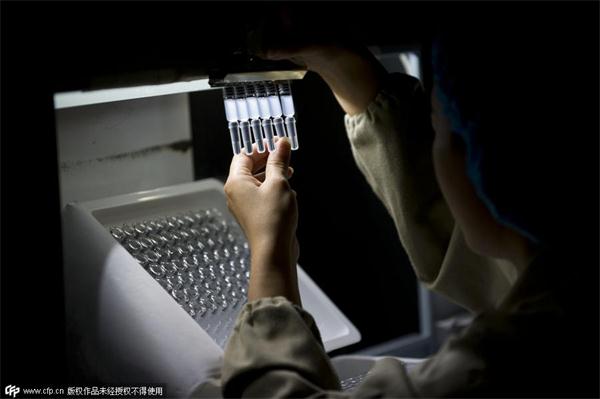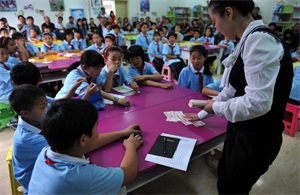Time to update quality rules on generic drugs
(China Daily) Updated: 2016-05-18 07:40
 |
|
A researcher checks the vaccination against hepatitis B. [Photo/CFP] |
An increasing number of Chinese hepatitis C patients reportedly travel to India to buy cheap generic drugs for their treatment, instead of buying such medicines manufactured at home. Southern Metropolis Daily commented on Tuesday:
That India has become the "global pharmacy" has a lot to do with both its patent law and the high quality of its generic drugs.
On the one hand, the country allows local pharmaceutical companies to produce generic drugs before the original drugs' patents expire and even export these generic drugs overseas.
On the other hand, Indian pharmaceutical factories, less than 120 of which are certified by the United States' Food and Drug Administration, are able to make generic drugs that are almost as effective as the originals which have to pass a series of trials before entering the market.
In comparison, the generic drugs made in China are not as effective; some may even provoke allergic reactions and other side-effects.
Admittedly, Chinese pharmaceutical companies face tougher restrictions when it comes to the mass production of generic drugs under the country's law for patent protection. Yet, the loose supervision and quality control of generic drugs, which do not have to meet the standards of the originals, are also to blame.
As a result, some Chinese medicine makers even use the generic drugs on sale as a reference and produce their own. These drugs may end up having totally different effects from the original versions after rounds of "misinterpretation".
The Good Manufacturing Practice, which was adopted by China in the 1990s, has also failed to improve the quality of Chinese generic drugs due to the insufficient implementation and loose regulations, dealing a major blow to market share.
It is thus time for the Chinese food and drug authorities to streamline the quality control of domestically made generic drugs, in a bid to put an end to the poorly regulated pharmaceutical market.
- China's e-pharmacy eyes prescription drug for full-bloom growth
- Harsher terms await drug offenders
- Chinese drug regulator vows to fix vaccine distribution loopholes
- Drug for chronic hepatitis B to begin mass production in Qingdao facility
- Hepatitis C patients seek access to better drugs: survey
- The bitterest pill for hepatitis C patients
- Clinical trials underway for hepatitis B vaccine
- Treating hepatitis is cheaper than not

I’ve lived in China for quite a considerable time including my graduate school years, travelled and worked in a few cities and still choose my destination taking into consideration the density of smog or PM2.5 particulate matter in the region.











